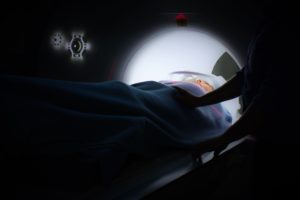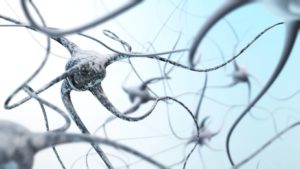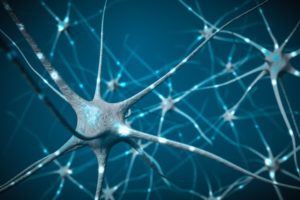 Heather was 38, and had had a series of extreme stressors over a period of several years. She was a giver at heart, always looking for ways to help — always trying to make the lives of people she knew easier or more fun.
Heather was 38, and had had a series of extreme stressors over a period of several years. She was a giver at heart, always looking for ways to help — always trying to make the lives of people she knew easier or more fun.
But then her husband left her. It was the same old, tired story — an affair with her closest and dearest friend. But still … she was left with two enormous losses, and a crippling sense of betrayal about both of them.
She tried to function for the sake her of two children, Katie and Noah. One foot in front of the other. One day at a time.
Another Devastating Crisis
Three years later, Noah was hit by a school bus and rushed to the hospital. He had a  concussion and his pelvis and femur were broken in so many places they gave her minimal hope he’d walk again. Weeks in the hospital, then months of rehab. Asking neighbors and family members to pick her daughter up at school, get her to piano lessons, grab dinner.
concussion and his pelvis and femur were broken in so many places they gave her minimal hope he’d walk again. Weeks in the hospital, then months of rehab. Asking neighbors and family members to pick her daughter up at school, get her to piano lessons, grab dinner.
She was exhausted. And Noah was beginning to walk with a walker and just starting back to school when she got a phone call from her mother.
Another Overwhelming Tragedy
Her dad had died when she was 25 and her mom lived alone. Mom just found out she had an aggressive form of breast cancer. She’d been told to expect a year minimum of treatment then re-evaluation. But when her mom got so tired she couldn’t drive back and forth to chemo, there was nothing to do but have her mom stay with her. She’d probably be there through radiation, too. Heather asked her mom’s neighbors to look in on her house.
So a household of three greatly stressed people became a household of four extremely stressed people. Heather just held her chin up and set out to get through this, too. The idea of losing her mom when she was so young was terrifying.
She cooked, cleaned, ran the kids around. Made dinner. Went to work. Drove her mom to chemo. Did everything.
Stress Takes Down the Best People
Finally, 6 months later, her mom had to be admitted to the hospital. Her next door neighbor  offered to take care of Katie and Noah for a few days. Thank goodness. But then … Heather didn’t get out of bed or out of her pj’s for three days … and she felt less and less like getting out of bed after that. She went through the motions of getting her kids to school and back home again … and feeding them when they were hungry. But she was numb. She was barely functioning.
offered to take care of Katie and Noah for a few days. Thank goodness. But then … Heather didn’t get out of bed or out of her pj’s for three days … and she felt less and less like getting out of bed after that. She went through the motions of getting her kids to school and back home again … and feeding them when they were hungry. But she was numb. She was barely functioning.
Finally, darkness wrapped around her like a cold box, and she felt hollow. Numb. Adrift.
Someone from the church came to see her. When they saw how she looked, they could see she’d been through too much for too long. They went to work to take over the care of her mom, and took her to the hospital. Heather was admitted with severe Major Depressive Disorder.
Heather’s a giving, kind, and generous person. But chronic and repeating stress can take down the best people, and Heather was no exception. It brought her to her knees.
How Stress Brings Someone Like Heather to Her Knees
We’ve talked and talked about what stress does to your brain, and how it contributes to depression.
But let’s talk about why that happens.
Thanks to recent studies sponsored by Brain and Behavior Research Foundation, we’ve learned some things lately.
And I’m excited to share them with you.
It all makes so much sense when you get a peek inside the brain to see what happens.
MIcroglia Unwittingly Launch a Destructive Attack
There are immune cells in the brain, called microglia, that are responsible for defending against infection, among other things. One of the other things they do is help build and change the construction of neural connections in the brain.
Huge. And hugely important.
In this study, the research team, led by Ronald S. Duman, periodically caused laboratory mice to undergo stress-inducing conditions over a period of weeks. Then they evaluated the effects of this chronic stress on their brains.
It’s not surprising that the mice displayed symptoms of depression and anxiety. The team demonstrated that the neurons in the prefrontal cortex — which control your abilities to make decisions and function socially — react to the stressors.
Specifically, these brain cells signal the microglia to begin “remodeling” pyramidal neuronal circuits … which basically WEAKENS them. The outcome is that the synaptic connections between the neurons in the prefrontal cortex begin to break down. And too many of them are lost.
Sounds like Heather. Broken down. Lost.
Maybe that sounds like you.
How to Stop the Damage?
Then the team carried it another step.
When they blocked the neurons from signaling the  microglia, the chronic stress the mice were subjected to did not affect their synapses in their prefrontal cortex so they did not become depressed.
microglia, the chronic stress the mice were subjected to did not affect their synapses in their prefrontal cortex so they did not become depressed.
The research team concluded that finding a way to block the neurons from signaling the microglia could be a way to treat anxiety and depression.
(It seems to me this could be a fantastic way to prevent anxiety and depression in those subjected to long term chronic stress, such as first responders, those with chronic illnesses, and more.)
You can imagine that if you undergo extreme stress over an extended period of time, that more and more of these connections will be lost due to microglia activity. And depression and its accompanying anxiety become more and more severe.
So what can be done about this deconstruction… these massive losses of synapses?
Restoration through an Extraordinary Medicine
Enter IV ketamine treatment, which has been shown to rapidly rebuild and proliferate these synapse connections that have been broken down by depression and anxiety … which are caused by stress and which create more stress of their own.
Remember that tiny doses of ketamine, administered properly, turns on mRNA to switch on  DNA which turbo charges the brain-derived-neurotrophic-factors (BDNF) so the synapses grow, branch out, and proliferate creating a dense forestation of neuron connections.
DNA which turbo charges the brain-derived-neurotrophic-factors (BDNF) so the synapses grow, branch out, and proliferate creating a dense forestation of neuron connections.
And when all these neurons in the prefrontal cortex are tied together with a dense network of synapses, you come alive. Joy returns. Creativity blooms. Initiative and motivation billow.
This is what we can do about those lost synaptic connections.
Innovative Psychiatry Offers Expertly Administered Ketamine Infusions
We know that stress takes down the best people. You probably know someone like Heather who tries to help everyone, but eventually she’s the one who breaks down and needs help.
At Innovative Psychiatry, we see extraordinary, positive outcomes in treatment-resistant depression and bipolar depression, as well as in PTSD, OCD, social anxiety and suicidal thinking. That means that very ill people can get really, truly better. As in happy, upbeat, full of energy, initiative, and hope for the future.
You can feel like yourself again. With the energy to embrace each day, the hope to look forward to the future. You can enjoy an afternoon breeze, a beautiful ocean view, or the fragrance of a summer rose.
When was the last time that happened?
If you suffer from depression, anxiety, bipolar disorder, PTSD, OCD, social anxiety or suicidal thoughts, and medications haven’t helped, call us. We can help you leave psychiatric disorders behind, and live a fulfilling life.
Live as the best you you can be.
 To the emerging of your very best self,
To the emerging of your very best self,

Lori Calabrese, M.D.